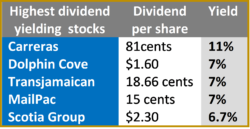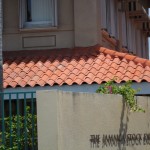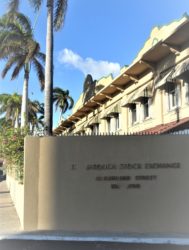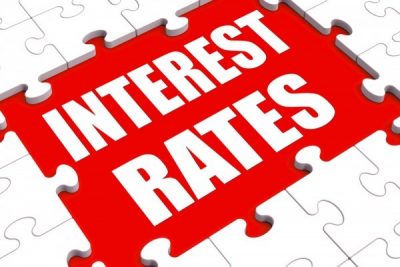 The Bank of Jamaica’s website shows their inflation target for the 2019 to 2020 fiscal year ranging from four to 6 percent and they expect that such high levels of inflation should be achieved by 2020/21.
The Bank of Jamaica’s website shows their inflation target for the 2019 to 2020 fiscal year ranging from four to 6 percent and they expect that such high levels of inflation should be achieved by 2020/21.
While the central bank announced these targets, the government just reopened their 2029 bonds that was originally had a fixed interest rate of 5.679 percent. Investors placed bids to buy $12.9 billion although only $4 billion were offered for sale. The average yield came out at 5.195 percent. Some investors placed bids as high as 9 percent but were unsuccessful.
To tie up money for 10 years when the central banks is targeting inflation above the yield of the bond on the surface is puzzling. That of course is one conclusion. The more probable one is that those who invested in these bonds are betting that the central bank will not see inflation anywhere close to the levels that are targeting. This publication is of the view that the latter is the correct position.
Something is clearly wrong with the monetary policy.
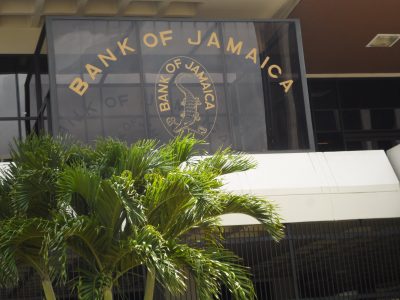
BOJ interest rate & cash reserves cut will help push demand in the economy.
At the start of 2018, BOJ policy rate was at 3 percent today it at a mere 0.75 percent. That is a very sharp reduction within just over a year. The central bank has also in recent times cut the cash reserves levels thus creating more liquidity in the system.
With all of those moves, lending rates remain relatively high, with the only noticeable change, being rates on motor car loans. The worse signal of this is that credit card rates remain at nearly 50 percent per annum without a single point move. Mortgage rates remain unchanged or largely so, with one or two institutions offering new borrowers lower rates. The 225 percentage points cut in overnight rates (ON) should have induced an across the board reduction in lending rates under normal circumstances but that is not happening and is clearly showing that something is wrong with the policy.
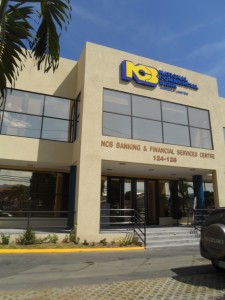
National Commercial Bank pays very low savings rates
Some of the impediments to lower lending rates, are caught up in the very measure BOJ is pushing. Banks have a large pool of very low cost deposits and current account balances that pay zero interest rates. When rates are low, it is much more difficult to cut a rate that is just a fraction of a percent. Put another way, if banks are paying 0.5 percent or less savings accounts, how do they pass the BOJ rate cut onto savers, the ones that will bear the cost?
A visit to NCB website sets out the likely interest rates they pay on deposits. Up to $99,999, a saver would get a mere 0.05 percent, at $1m one would get 0.55 percent and 0.70 percent would be the payment for $5 million and over. These rates were at April 2018. This is the clearest sign why the BOJ policy has not worked and will not work. Since last year April, the overnight policy rate is down by 200 basis points. With rates on deposits at almost zero the banks have limited options to cut rates and if they did, it would not be anywhere close to the extent of the ON rate cut.
Reducing the cash reserves is a far better tool to cut lending rates. Banks with the large amount of profits reported and in many cases lousy service, are not the friends of a large cross section of Jamaicans. Like them or hate them they still provide a useful service. Companies generally, do not absorb cost, they pass them on to consumers. When governments place taxes on banks and other financial institutions with the mistaken view that they are taxing those entities, they are making a huge error. What taxes do is increase the cost of banks providing service to customers. That is one reason why some in the system want government to move and curtail bank charges. When banks were first slapped with the asset tax, they turned to fees for added revenues, to offset the increased tax.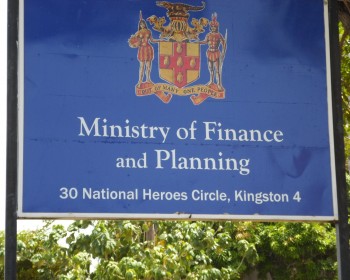
Government, if they are serious about stimulating the economy by lower lending rates must bell the cat. First, they must accept that the cutting interest rates on deposits will not work as those rates are already close to zero. Keeping savings rate artificially low will also encourage more persons to revert to savings in US dollar and place pressure on the Jamaican dollar. At best, banks may cut a few points here or there off lending rates but it will make little difference.
Government must sit with the financial institutions and arrive at an agreement to cut taxes in exchange for reduced interest rate on loans and credit cards. That is the only way to effect serious loan rate reduction to stimulate the economy in the shortest possible time.
To continue with a low savings rate policy that is not sustainable is going to lead to a bubble in the segments of the economy and when the inevitable reversal starts, there will be pain, as asset values adjust to the increasing value of money.



